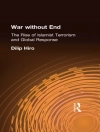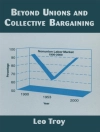In
China and Its Small Neighbors, Sung Chull Kim examines the political implications of the economic asymmetry between China and its small neighbors, part of wider changes in international relations brought about by the rise of China. While being critical of the current trend that focuses on the China-U.S. rivalry alone, Kim argues that a microanalysis of China’s advances toward its neighbors is a guide to understanding the trajectory of China’s expanding influence and transitions in world politics more broadly. Economic asymmetry—as seen in trade concentration, non-transparency, and reliance on bilateral aid—has made China’s small neighbors vulnerable on the political front, thus generating potential threats to their sovereignty and independence. Because China has the upper hand in the bilateral relationships, these weak states practice dual-core hedging as a strategy for survival. They hedge on China for expected economic benefits and at the same time hedge against their powerful neighbor to mitigate the risks involved in that hedging-on. Each small state’s mode of hedging depends on its degree of vulnerability and its availability of policy instruments such as multilateral institutions and bilateral partnerships with extra-regional powers.
Tabella dei contenuti
List of Illustrations
List of Abbreviations
Acknowledgments
Introduction
1. Exploring Key Concepts in the Relationship between China and Its Small Neighbors
2. Asymmetrical Economic Relationships and Vulnerability to Coercion
3. Vietnam: Perception of Duality and Mixed Hedging
4. Cambodia: Neutrality in Principle, Alignment in Practice
5. Myanmar: Hedging amid Internal-External Security Linkage
6. Uzbekistan: Hedging with Balanced, Multivector Diplomacy
7. Mongolia: Multidimensional Hedging
8. North Korea: Alignment Tinged with Distrust
Conclusion
Notes
Works Cited
Index
Circa l’autore
Sung Chull Kim is Visiting Research Fellow at Seoul National University Institute for Peace and Unification Studies, where he also served as Humanities Korea Professor until retiring in 2021. His many books include
Partnership within Hierarchy: The Evolving East Asian Security Triangle, also published by SUNY Press.












